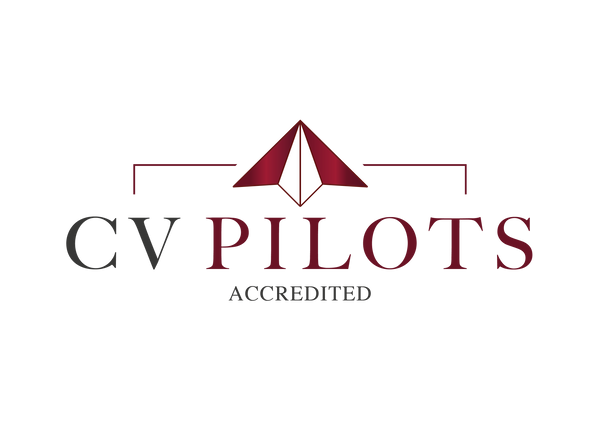
CV Pilots UK: Frequently Asked Questions (2025 Guide)
Frequently Asked Questions About Working With CV Pilots
Considering working with CV Pilots but not sure what to expect? Below, we answer the most common questions from executives, senior professionals, and ambitious job seekers about our executive CV writing service UK.
What differentiates CV Pilots from other CV writing services?
Our mission is simple: to be the most trusted CV writing service for executives and professionals in the UK.
Unlike many CV companies, we don’t outsource your document to anonymous writers or rely on AI to do the work. Everything we do aligns with our core values:
-
Writing Excellence: Our writers are highly educated, rigorously trained, and skilled at crafting ATS-friendly CVs that win attention in competitive UK and international markets.
-
Superior Service: Through in-depth one-to-one consultations, we invest the time to understand your career story, aspirations, and target roles. No templates. No shortcuts.
-
Unflinching Integrity: We never exaggerate or misrepresent. We present your experience honestly, but in the strongest possible way.
We are proud members of the Professional Association of Résumé Writers and Career Coaches (PARW/CC) — the global authority for CV writing standards.
If you’re ready to take the guesswork out of job applications and
give yourself a genuine competitive edge, our CV Reviews and
CV Template Bundles are designed to help you stand out in even
the toughest hiring markets.
CV Reviews – Save £60
If you’re not sure your CV is truly working for you, our
Professional CV Review Service provides in-depth, recruiter-level
feedback on content, structure, and ATS compatibility. You’ll receive
a personalised action plan showing exactly what’s holding you back
and how to fix it, so you can apply with confidence. Use discount code
PCVR60 at checkout to save £60 and give your next application the
competitive edge it deserves.
CV Template Bundles – Save £40
Prefer to write your own CV but want a proven framework? Our
CV Template Bundles include an ATS-friendly, recruiter-approved
template, plus our storytelling framework, metrics tracker, CV checklist,
and scorecard - everything you need to create a document that sells
your skills and achievements. Use discount code CVTB40 to get
£40 off and start building a CV that gets noticed for all the right
reasons.
These tools pull back the curtain on the hiring process, cutting
through the smoke and mirrors so you understand exactly what
employers and ATS systems are really looking for
What kind of clients do you work with?
We work with professionals who are serious about their careers — from students applying to competitive graduate programmes to C-suite executives leading global businesses.
Most of our clients are senior leaders, including:
-
Fortune 500 CEOs
-
Global Directors in banking and real estate
-
Chief Scientific Officers in pharmaceuticals
-
Chief Strategy Officers in SaaS and technology
-
Heads of Digital Marketing in eCommerce
-
Corporate Counsel in media
-
Vice Presidents of Supply Chain in FMCG and luxury goods
Whether you’re applying for your first board seat or preparing to pivot industries, we help position you for your next step.
Have you written CVs in my industry?
Almost certainly. We’ve written CVs across most sectors, including:
-
Finance and Investment Banking
-
Real Estate and Property
-
Sales and Marketing
-
Healthcare and Pharmaceuticals
-
Hospitality and Travel
-
Technology, Engineering and Consulting
What matters most is not niche sector experience, but our ability to:
-
Ask the right questions
-
Translate your achievements into measurable impact
-
Produce a bespoke, recruiter-approved document
CV writing is collaborative. We clarify your goals, explore your niche in detail, and ensure your CV reflects both your expertise and your target roles.
Do you work with international clients?
Yes. We work with clients across Europe, the Middle East, Asia, and the US.
All consultations are conducted by phone or Zoom, and we tailor your CV for the region where you’re applying. For example, a CV for a UK-based role will look different to one intended for Dubai or the US.
What does your process look like?
Our process is thorough but straightforward:
-
Information gathering – You complete a detailed questionnaire and share your existing CV or career history.
-
Consultation – A one-to-one phone or Zoom call where we dig into your achievements, goals, and target roles.
-
Drafting – We craft an ATS-friendly, achievement-led CV tailored to your industry.
-
Feedback & revisions – You review, we refine. Typically 1–3 rounds of revisions lead to your perfect final document.
Unlike many CV services, we don’t skip the consultation stage. It’s where the best insights are uncovered.
Why are you priced higher than other CV writing services?
Because we devote significantly more time and expertise to each client. A typical project involves:
-
Reviewing your background materials
-
Conducting a one-to-one consultation
-
Outside industry and role research
-
Writing and editing your CV
-
Follow-up revisions and guidance
This process equates to at least a full working day per client.
In contrast, many cheaper CV services:
-
Rely on AI or generic templates
-
Outsource writing to non-native English speakers
-
Skip consultations altogether
Our clients choose us because they value quality and know that a well-written CV is an investment in their career progression.
Will I get input during the process?
Absolutely. It’s your career story, and your input matters.
We’ll incorporate your feedback, but we’ll also advise when a change may not align with recruiter expectations or best practice. Think of us as a partner: collaborative, but always focused on your best interests.
Is the investment worth it?
Most of our clients say yes — and many return to us for CV updates as they progress through their careers.
To put it in perspective: if you earn £100,000 per year, your CV investment is usually well under 1% of your salary. If it helps you secure a faster career move, a promotion, or a higher-paying role, the ROI is significant.
Can you review my CV before I commit?
Yes. If you’d like us to review your CV first, email it to team@cvpilots.co.uk. We’ll provide feedback on whether we believe we can add value — and only work with you if we’re confident we can help.

Do you guarantee results?
No reputable CV writer should guarantee interviews or job offers. Too many external factors are at play:
-
The strength of other applicants
-
Your fit for the role
-
Interview performance
-
Market conditions
What we do guarantee is a professionally written, recruiter-approved CV that gives you the strongest possible chance of success.
Can you update my CV with my new role?
Yes. If you’ve previously worked with us, we can update your CV with your most recent roles. Just email us for a custom quote — you don’t need to buy a full new package.
Where are you based?
CV Pilots is based in the UK, with clients worldwide. Our writers regularly work with professionals in London, Zurich, Dubai, Hong Kong, Milan, Tokyo, and beyond. All consultations are conducted remotely, but our writing teams are based in their own local markets (as part of our team, not outsourced) so they understand the local recruitments processes and market trends.
Where can I learn more?
The best way to learn more is to book an introductory call with us. It’s your chance to ask questions, share your goals, and see if we’re the right fit.
To find out more, visit our website www.cvpilots.co.uk If you have any further questions, you can either book a consultation call with one of our team, or get in touch via email on team@cvpilots.co.uk

